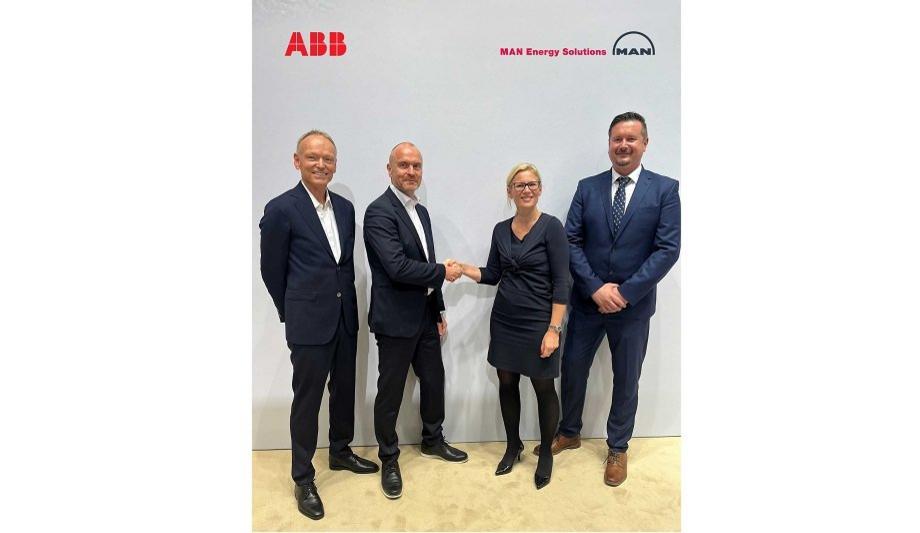At the recent SMM trade fair in Hamburg, MAN Energy Solutions and ABB, a technology company signed a Decarbonisation Cooperation agreement regarding the development of a next-generation, Dual-Fuel, Electric+ (DFE+) propulsion concept for LNG carriers.
Operational flexibility
The DFE+ concept features the MAN 49/60DF engine, itself launched at SMM 2022 and ABB’s Dynamic AC (DAC) technology and aims to deliver the operational flexibility shipowners need to cut carbon footprints as well as fuel bills for liquefied natural gas carriers.
The scope of the collaboration covers a joint concept study between the partners sharing technical data, and discussing interfaces and system integration. MAN Energy Solutions and ABB intend to promote the concept to customers jointly.
Efficiency and compliance
The new power and propulsion system will be optimised for efficiency and compliance"
Rune Lysebo, Global Head of Sales, ABB Marine & Ports, said, “Progressive regulations on emissions have called for continuous innovation in marine propulsion.”
“To be truly future-proof, ships that are being built today need to be able to rely on flexibility in energy sourcing. The new power and propulsion system will be optimised for efficiency and compliance, and have the flexibility needed to achieve the best performance.”
Innovative and decarbonising marine solution
Elvis Ettenhofer, Head of Marine Four-Stroke – Region Asia Pacific, MAN Energy Solutions, said, “Two names like MAN Energy Solutions and ABB coming together to develop an innovative, decarbonising marine solution sends a strong signal to the market.”
“Customers demand efficient and flexible propulsion concepts so they can react quickly to changing market conditions through the best use of their assets.”
Reduce methane and fuel costs
The technology will help our customers to reduce their CO2 footprint and fuel costs and will provide flexibility"
He added, “This cooperation with ABB will deliver the technology necessary to provide a new propulsion concept. In turn, this will help our customers to reduce their CO2 footprint and fuel costs, and will provide the flexibility, for example, in operation for different trades or retrofits from an LNG carrier to floating storage units or floating storage regasification units.”
“This concept can reduce methane slip and fuel costs compared to conventional diesel-electric propulsion systems. ABB’s DAC and global presence are an ideal match for our new four-stroke engine.”
The DFE+ concept
Whereas the conventional DFDE concept is characterised by:
- Constant-speed operating engines (gensets) over the entire engine load,
- Optimised for high load, for example, the 85% load point,
- In part- and low-load have high methane slip and less efficiency.
The new MAN/ABB DFE+ concept comprises:
- Variable-speed operating engines (gensets) over the entire engine load,
- Better efficiency with significant reduction of methane slip over the entire engine map.
Efficiency and variable-speed applications
While variable-speed applications are well established for liquid-fuel systems up to 10mWe, torque requirements and the low efficiency of first-generation dual-fuel engines including limitations in the e-systems design for diesel-electric propulsion systems over 10 mWe killed variable speed for propulsion systems over 10mWe.
ABB’s Dynamic AC technology enables the operation of propulsion systems above 10 mWe at variable speed with all the accompanying benefits. In combination with the second-generation, high-efficiency MAN 49/60DF engine (with ALSi – Air Lubrication System interface, as an add-on), this DFE+ concept will provide customers with next-level efficiency and flexibility.











